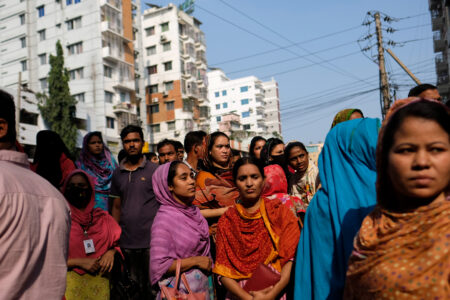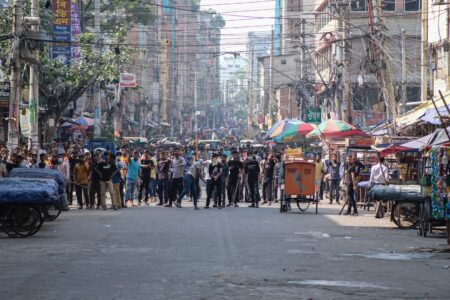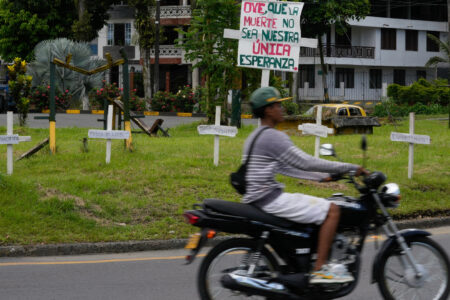
The “empowerment of women” is mentioned 32 times in Canada’s Feminist International Assistance Policy, and $150 million has been allocated to related activities in developing countries over the next five years. But what does it really mean for Western non-governmental organizations (NGOs) to empower African women?
Consider Lamaro, who was abducted by rebels during the civil war in Uganda (1986-2007) and given as a gift to a commander. Her community continues to marginalize her, because she had children out of wedlock, which violates gender norms.
Akello has three children and is secretly taking birth control. Since her husband doesn’t understand why she isn’t getting pregnant, he has threatened to kick her out if it turns out that she is now barren.
Adoch’s new boyfriend is HIV-positive. Since he does not like using condoms, she continues to have unprotected sex with him. She knows that at some point in the future she will likely be infected with the virus, but she accepts that risk since he is paying for her children’s school fees.
When the war began in northern Uganda, these women were children. They have survived abduction by armed groups, forced marriages, the deaths of family members and abandonment. They are resilient beyond measure, but they must navigate an enduring patriarchal culture.
Lamaro, Akello and Adoch all attended programs provided by NGOs that aimed to “empower.” If disempowerment means to be denied choices, then empowerment is to bestow choices. Yet in practice, it is perceived by NGOs as a process, an outcome or some combination of the two, where a woman gains technical and life skills or may begin to see herself as a rights-bearer. Programs rarely consider the cultural context and the limited opportunities the women will have to use this knowledge once they complete the training. Lamaro, Akello and Adoch may now know their rights but they still don’t have a lot of options to choose from to deal with their dilemmas because women’s concerns are marginalized within communities and local government systems in northern Uganda.
Realistically, they have two choices: they can put up with their situations or live independently with their children. This second option would alienate them from their own families and decrease the likelihood that they will marry again. Single mothers who live independently are often stigmatized by their community, considered prostitutes, and they often live in poverty.
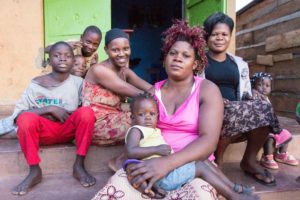
Should NGOs work with governments and communities to challenge the systems that keep women in poverty and in abusive relationships, or should they continue to deliver initiatives based on a belief that women simply need to be empowered? This was one of the burning research questions that brought me to northern Uganda five times from 2014 to 2017.
A substantial amount of research demonstrates that well-intentioned initiatives aiming to empower women are not working. Yet the Minister of International Development and La Francophonie Marie-Claude Bibeau recently stated, “Focusing Canada’s international assistance on the full empowerment of women and girls is the most effective way for our international assistance to make a difference in the world. Sustainable development…[is] not possible unless women and girls are valued and empowered” (emphasis added).
I am not suggesting that the Minister is misinformed. Rather, the term “empowerment” is so embedded within the development discourse that no one questions its meaning.
Rather than addressing the barriers, such as patriarchal values, that limit women’s choices, those in international development train women in a few gendered, low-income fields, such as tailoring, hairdressing or catering, and the result is saturated markets. The rationale is that skills training will lead to the development of independent businesses, but it ignores the lack of viability of small enterprises within northern Uganda’s fragile economy.
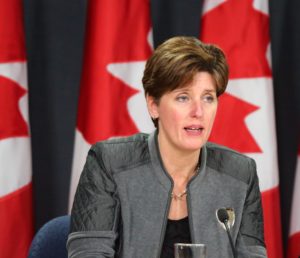
An abundance of research indicates that when women do indeed get empowered financially, their gains are taken by their husbands or they are beaten for being “stubborn” and “spoiled.” Rather than empowering women, it’s time to educate men.
In his viral TED Talk, Jackson Katz, an expert on media and masculinities and gender-based violence, does not ask why women experience so much abuse; instead he questions the socialization of men. Similarly, in addition to training girls on how to avoid sexual assault, an NGO in Kenya developed the “No Means No” program, which also educates young boys about how to respect girls.
NGOs need to work with established women’s groups, governments and communities to address patriarchal values, increase opportunities for women and create a climate that supports the growth and equality of women. I propose a five-step approach, based on my research.
First, understand the political, social, cultural and historical contexts and the barriers to improving the welfare of women, and then tackle those systems.
Second, ask the women what they need. Don’t assume what they need or give them what you’ve got — give them what they tell you they need; work with them and then give them ownership of the initiative.
Third, educate boys and men to prevent them from beating, raping, abandoning, abducting and marginalizing girls and women.
Fourth, measure the results. Finally, report on what worked and did not work, so we don’t keep wasting millions of taxpayer dollars on projects that have little or no impact.
After getting training in human rights, reproductive health and vocational skills, all of which aimed to empower, the Ugandan women profiled above continue to live in poverty and are not working in their fields. Lamaro did leave her husband, and she created a business selling vegetables at the market. Akello was kicked out of her home by her husband and in-laws. Nine months later, she finally found a job and now cleans up hospital waste 12 hours a day. Adoch’s boyfriend left her right before she was diagnosed as HIV-positive. She cannot find work but has access to free medication.
These women told me that they are striving to be “independent, inspirational women” and that their fervent hope is that their children will have a better life. It is their determination, faith and strength — perhaps enhanced by the work of NGOs — that enable these women to face another day.
Photo: KOLONYI, UGANDA – Pregnant woman wait for an ultrasound scan at the Kolonyi hospital in Uganda on October 2, 2016. Photo by Shutterstock/By Dennis Wegewijs
Do you have something to say about the article you just read? Be part of the Policy Options discussion, and send in your own submission. Here is a link on how to do it. | Souhaitez-vous réagir à cet article ? Joignez-vous aux débats d’Options politiques et soumettez-nous votre texte en suivant ces directives.






